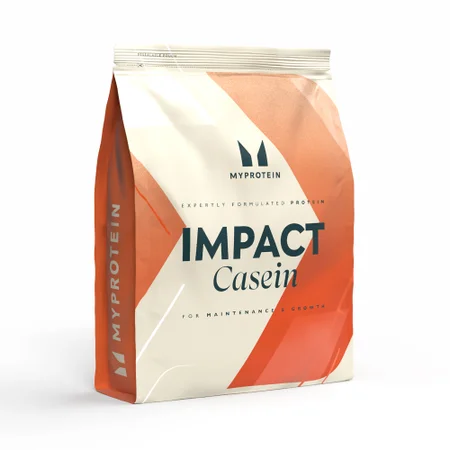What type of Protein is Casein?
Casein is derived from cow’s milk and makes up 80% of milk protein. It contains essential amino acids, which are the building blocks of protein and considered essential since they cannot be produced by your body. Casein protein is a "slower digesting" protein which forms a gel-like substance when it interacts with water. This slows down the release of protein and makes it an arguably better option for satiety and protein meals pre-fasting (such as your last meal of the day).
What are the Benefits of Casein Protein?
Casein is a popular form of protein because it’s slow-digesting and releases Amino Acids gradually, making it a great option for bedtime nutrition that provides a continuous boost of protein throughout the night — ideal for helping to support your muscle growth and maintenance while you sleep.
Our Milk Protein and Casein Products
Our range of milk protein and casein powder offers an unbeatable selection of high-quality shakes, powders, and blends to fuel your training.
Slow-Release Casein is our super-popular casein protein powder, designed to support your muscles overnight:
• Ideal night-time protein shake
• Contains 23g of slow-release protein per serving*
• Complete amino acid profile
• Available in a variety of delicious flavours
Slow-Release Casein Elite has been tested in line with the World Anti-Doping Agency (WADA) guidelines - officially safe for professional athletes:
• Cologne List® accredited
• Informed-Sport tested in line with WADA guidelines
• 24g of slow-releasing protein per serving*
• Contains only 0.5g of fat per serving*
Our Overnight Recovery Blend is a complete night-time recovery shake:
• Combines a slow-release blend of milk protein, micellar casein, whey concentrate, and egg white powder
• 45g of protein per serving*
• Contains magnesium and zinc - which helps reducing tiredness and fatigue
• Includes l-glutamine
*Nutritional information will vary depending on flavour.
FAQs
How is milk protein produced?
Whole milk is first separated into cream and skim milk. The skim milk is then ultrafiltrated to create a skim milk reduction. This reduction is further filtered to separate the casein and whey proteins from the other components within the skim milk. Once isolated these are then spray dried to create the milk powder which we use in our products.
What animal is milk protein from?
We source our milk protein from dairy cows.
Is milk protein the same as whey ?
Whilst the source may be the same, the difference lies in the form of protein present; milk protein is 80% casein 20% whey protein whereas whey is virtually 100% whey protein.
What is the difference between milk protein concentrate and casein?
Casein powders will be virtually 100% casein protein whereas milk protein concentrate will be 80% casein and 20% whey proteins.
Does Casein protein make you gain weight
Casein protein does not automatically make you gain weight, this will depend on a number of factors, including:
- Your metabolism: Some people are more prone to weight gain than others.
- Your calorie intake: If you are consuming more calories than you are burning, you will gain weight, regardless of whether you are eating casein protein or not.
- Your activity level: If you are not active, you are more likely to gain weight than if you are active.
Does milk protein build muscle?
If your exercise programme and overall lifestyle support the goal of muscle building, then milk protein may be a valuable aid in helping you achieve it.
Can you get milk protein isolate?
Yes; it requires a further filtration process to further remove any non-protein constituents, however, it would leave you with an isolated protein source of at least 90% pure protein.
Is milk protein easy to digest?
Milk proteins may be more difficult to digest from source, however, our powdered products have had most of the lactose (the more difficult to digest component of milk) removed.
What are the side effects of casein protein?
Casein protein is a milk protein that is generally well-tolorated. However some people may experience side effects, these can range from digestive upset as some may experience bloating and gas, skin reactions such as hives and itching and finally headaches. Some way to mitigate these effects as a first time user would be to start with small doses, pairing it with other foods (fruits and vegetables) and drinking plenty of water.
